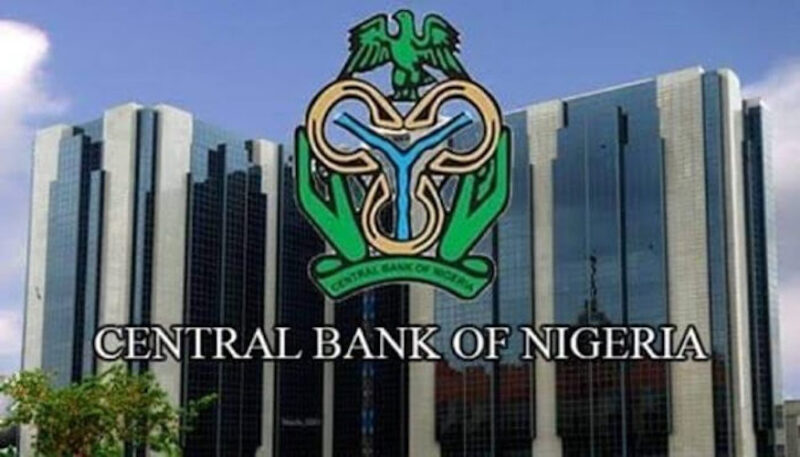The Central Bank of Nigeria (CBN) has instituted structural reforms to broaden its efforts in consolidating and raising regulatory effectiveness in the financial services sector.
The Bank’s policies are also designed to expand existing supervisory frameworks, clarify institutional responsibilities, and maintain focused oversight of non-prudential and emerging risks. The apex bank’s new compliance directives to banks, Payment Service Banks (PSBs) and Other Financial Institutions (OFIs) are expected to enhance the quest for improved regulatory effectiveness and industry-wide oversight responsibilities.
One of the critical roles of the CBN is ensuring high standards of banking practice and financial stability through its surveillance activities. The financial sector regulator is empowered by the Bank and Other Financial Institutions Act (BOFIA) 2020 to promote an efficient payments system that thrives within a sound financial framework.
To achieve these objectives, the apex bank constantly issues policies and regulations that entrench strong oversight responsibilities and ensure the sustenance of a sound and efficient financial system.
In addition to its core functions, the CBN has over the years undertaken developmental roles that impact key sectors of the Nigerian economy, including financial, agricultural and industrial sectors. These mandates are carried out through the bank’s various departments, with recent reforms under Olayemi Cardoso, governor of the CBN, focused on stabilising the exchange rate, curbing inflation, strengthening banks’ capital buffers, and creating a conducive environment for businesses and individuals. Cardoso has stressed that ethics and professionalism in market operations are under strict scrutiny, with the FX Global Code introduced for all authorised dealers and participants to promote transparency and accountability.
Last week, the apex bank assigned new roles to its newly inaugurated Compliance Department, which was established in the first quarter of this year. In a circular to all banks, PSBs and OFIs, the CBN announced that the department will now oversee financial crime supervision, market conduct supervision, enterprise security supervision, and corporate governance and ESG supervision. The bank explained that this structural reform is part of its broader effort to embed regulatory effectiveness within supervisory frameworks, clarify institutional responsibilities, and sustain focused oversight of non-prudential and emerging risks.
In addition to its core functions, the Central Bank of Nigeria (CBN) has over the years taken on significant developmental responsibilities, focusing on key sectors of the Nigerian economy, including financial, agricultural, and industrial sectors. These mandates are carried out through the bank’s various departments, which continue to serve as vehicles for implementing reforms and policies that shape the broader economy.
Under the leadership of Cardoso, the CBN is driving economic reforms through targeted policies, transparent market operations, improved coordination between monetary and fiscal authorities, and a strong commitment to rebuilding trust. These efforts have been focused on stabilising the exchange rate, curbing inflation, strengthening banks’ capital buffers, and creating a conducive environment for the growth and success of both businesses and individuals. The ethics and professionalism of bankers and treasurers remain under constant scrutiny, which is why the bank introduced the FX Global Code for all authorised dealers and market participants. Cardoso emphasised that surveillance of market activities has been intensified to ensure compliance and eliminate bad actors, stressing that the bank will maintain a zero-tolerance approach to violations in order to build a market founded on governance and transparency.
Cardoso reiterated that the Nigerian banking sector remains robust with key indicators reflecting a resilient system. He noted that the non-performing loan ratio is well within the prudential benchmark of 5 percent, indicating strong credit risk management, while the sector’s liquidity ratio exceeds the regulatory floor of 30 percent, guaranteeing that banks maintain adequate cash flow to meet operational and customer needs. A recent stress test also confirmed the sector’s continued strength. He reminded stakeholders that in 2023, the CBN announced measures to strengthen banks’ capital buffers with a two-year implementation window, ensuring that banks remain in a strong position to support Nigeria’s economic recovery. According to him, this includes enabling access to credit for Micro Small and Medium Enterprises (MSMEs) and driving investments in critical sectors of the economy. He further emphasised the significant role of OFIs in boosting productivity and economic growth by widening access to financial services for underserved individuals and businesses. He said the strategy involves strengthening Primary Mortgage Banks (PMBs) and Microfinance Banks (MFBs) through model mortgage foreclosure laws to stimulate lending and reduce delinquency, integrating them into the Global Standing Instruction (GSI) platform to minimise non-performing loans, and leveraging Development Finance Institutions (DFIs) to expand on-lending facilities for well-managed OFIs.
During the unveiling of the CBN’s Strategy for 2024–2028 at the CBN head office, Cardoso outlined the vision of the apex bank to be a trusted and respected institution that inspires confidence in the Nigerian economy. He highlighted five strategic themes designed to address the most pressing priorities. The first is price stability and monetary policy effectiveness, which involves leveraging monetary tools and data-driven analysis to ensure price stability. The second is building a robust and resilient financial system that delivers a strong and inclusive financial sector. The third is governance, compliance, and advisory partnership to the Federal Government, underscoring the CBN’s role as a transparent and trusted advisor. Two enabling themes were also adopted: Excellence in Central Banking Operations and an Impact-Focused High-Performance Organization.
He stressed the importance of core values such as integrity, meritocracy, professionalism, accountability, courage, and tenacity in guiding the CBN’s work. Commending the Strategy Management Department for producing the new plan entirely in-house, he urged all staff to prioritise ethics, good governance, and transparency in their roles.
Cardoso called for collaboration from stakeholders, emphasising that the strategy belongs to every Nigerian and not just the bank. Members of staff at the apex bank said the new strategy, which is the fourth in the CBN’s history, aspires to reposition the institution to its core mandate and place it at the forefront of economic transformation. They recalled the three previous strategy cycles implemented between 2012 and 2024, each with unique focus areas, and praised the management for ensuring the development of the new strategy in record time. At the unveiling, the theme “Repositioning for Impact” was presented, with stakeholders acknowledging that the new direction effectively redefines the mission, vision, and values of the bank for greater national impact.
The CBN’s responsibilities are also guided by the 2007 Central Bank of Nigeria Act, which mandates the bank to promote financial system stability. This is achieved through reforms, improved access to finance, institutional capacity building, and sound corporate governance practices.
Uju Ogubunka, president of the Bank Customers Association of Nigeria (BCAN), explained that financial system stability is critical, as failure in the banking sector could undermine public confidence, contract money supply, reduce savings and investment, and destabilise the payment system with damaging effects on the economy.
Under Cardoso’s leadership, the CBN has also improved the functioning of the FX market, with significant results. Average daily turnover in the Nigerian Autonomous Foreign Exchange Market rose by 226 percent in the first half of last year compared with the same period in 2023. Foreign portfolio inflows increased by over 72 percent during the same period, while reserves grew from $32 billion in May 2023 to over $41.5 billion, equivalent to 10 months of import cover and the highest level in four years. The market has also supported over $9 billion in capital outflows within a year, enabling investors to repatriate funds freely without delays. The governor reaffirmed that the bank remains vigilant in monitoring activities in the market to ensure compliance, protect transparency, and remove bad actors, maintaining zero tolerance for violations.
He further reiterated that the banking sector remains stable, with a non-performing loan ratio within the prudential benchmark of 5 percent and a liquidity ratio well above the regulatory floor of 30 percent. Stress tests confirm the strength of the sector, and the CBN continues to focus on ensuring depositors’ confidence and financial system resilience. Overall, the apex bank says it remains committed to adapting strategies to safeguard the financial interests of Nigerians and stakeholders, reinforcing its dedication to maintaining a secure and stable banking environment.









